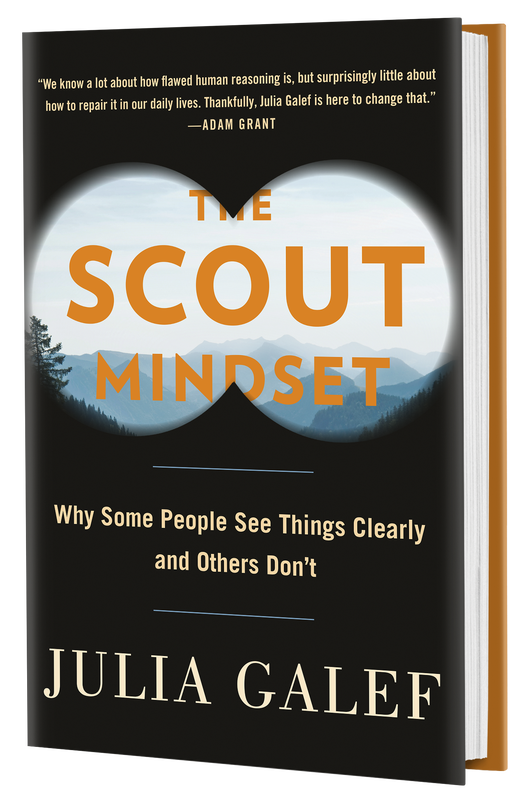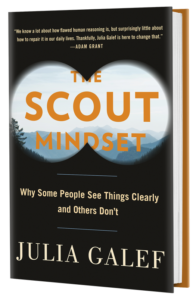Critical thinking is not a case of simply learning logic, biases, and logical fallacies. It is also how to apply these ideas to the real world. Sadly not enough emphasis is put on working past our
own emotions which can lead to supporting positions that agree with our own ideology rather than the facts.
Galef’s book looks at the various real-life important steps a critical thinker must take to avoid missteps. The ideas she presents are old hat to seasoned critical thinkers but she has collected them all into an easy-to-digest book. She uses the metaphor of the Mind Scout vs. the Soldier, to point out that critical thinking isn’t about always being right (the Soldier); it’s also mapping out the truth as best as one can determine at any moment in time (the Mind Scout).
It’s a wonder our imperfect brains allow any of us to do any rational thinking at all. But as Galef points out, a critical thinker can use these mistakes to make course corrections in beliefs. In fact some of the key indicators of being a Mind Scout is the ability to tell others when they were right and the ability to re-examine the evidence to prove yourself wrong. Other suggestions are the ability to accept criticism, know your own biases, and finally, know critics who can help you verify your beliefs (or not).
This book, alongside learning basic logic and fallacies, should be required reading in any critical thinking course.


